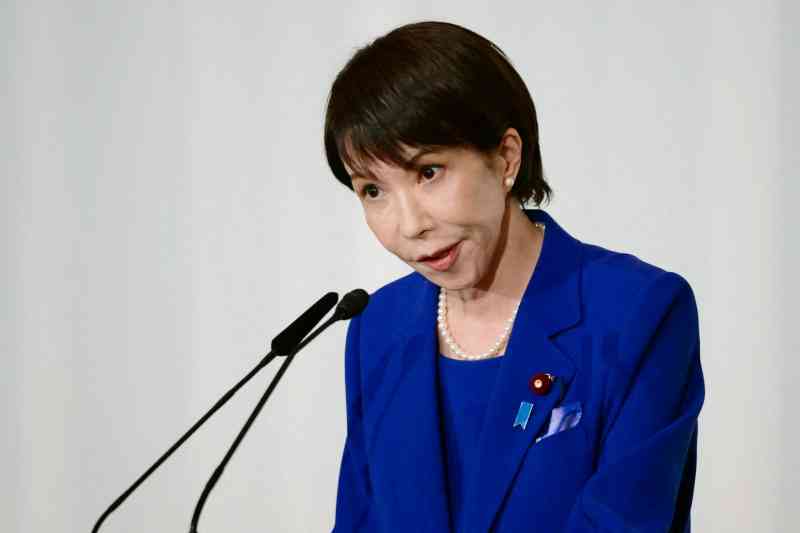
Sanae Takaichi is poised to become Japan's first female prime minister, but many of her positions are socially conservative in an often still deeply patriarchal nation.
Takaichi, whose hero is Margaret Thatcher, became head of the ruling Liberal Democratic Party on Saturday and will likely take office later this month.
She has promised to appoint a cabinet with "Nordic" levels of women, up from just two under outgoing premier Shigeru Ishiba.
Takaichi, 64, has also said she "hopes to raise awareness" about women's health struggles and spoken candidly about her own experience with menopause.
Despite these gestures, her policy positions on gender place her on the right of an already conservative LDP.
She is against revising a 19th-century law requiring married couples to share the same surname, which overwhelmingly results in women taking their husbands' names.
Takaichi also wants Japan's imperial family to stick to its male-only succession rules, and is "fundamentally opposed" to same-sex marriage.
Yuki Tsuji, a professor specialising in politics and gender at Tokai University, said Takaichi "has no interest in women's rights or gender equality policies".
"Therefore, it is unlikely that any change will occur in this policy area compared to previous LDP administrations," she told AFP.
Tsuji added the symbolic significance of having a woman as premier is "quite substantial".
But the pressure will be high to achieve results, and if she fails "this could foster negative perceptions of woman prime ministers", Tsuji said.
-'Proud'
Yuka, a Tokyo office worker in her 50s, welcomed Takaichi's win.
"We can proudly tell the world Japan will likely have a woman leader," Yuka told AFP.
But she is sceptical that there will be much progress on gender issues under Takaichi.
Stay informed. Subscribe to our newsletter
Last year ex-cabin attendant Mitsuko Tottori became boss of Japan Airlines, but hers is a rare success story in the corporate world where hours are long and childcare options are often limited.
Women in Japan held 13.2 percent of management positions in 2021, the lowest among members of the Organisation for Economic Co-operation and Development.
Japan ranked 118 out of 148 in the World Economic Forum's 2025 Global Gender Gap Report.
"There are many capable women but leadership roles tend to be taken by men in Japan," Yuka said, giving only her first name.
"Many women are forced to give up at the height of their careers because they have to take care of their children or ageing parents."
'Not that beautiful' -
In politics too, women are underrepresented, accounting for only around 15 percent of lawmakers in the lower house of parliament.
One notable exception is the three-term Tokyo governor, Yuriko Koike, who has announced several women-friendly policies including free day care for preschool children.
Female MPs have highlighted the difficulties of juggling the duties of being a politician and a homemaker -- not something that worries their male counterparts.
They also routinely face sexist jibes.
Former deputy prime minister Taro Aso in 2024 described then-foreign minister Yoko Kamikawa as an "aunty" and "not that beautiful".
The #MeToo movement has also failed to gain much traction in Japan, with few victims of sexual assault daring to come forward.
Those who have, including former soldier Rina Gonoi and journalist Shiori Ito, received plaudits for their bravery but also a barrage of online hate.
"In the past, there were female emperors but there was no woman prime minister," Ryuki Tatsumi, 23, a caregiver for disabled people, told AFP.
"So I think this can be an opportunity for Japan to make progress," he said.







